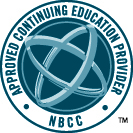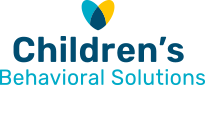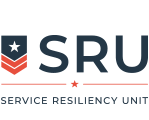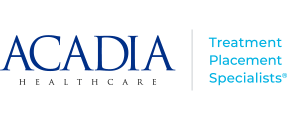
Children’s Behavioral Solutions-Acadia Healthcare has been approved by NBCC as an Approved Continuing Education Provider, ACEP No. 7111. Programs that do not qualify for NBCC credit are clearly identified. Children’s Behavioral Solutions-Acadia Healthcare is solely responsible for all aspects of the programs.
Anatomy of a Relapse
February 21st | 10:00am Eastern | 9:00am Central | 8:00am Mountain | 7:00am Pacific
The purpose of this workshop is to help professionals expose unhealthy conditions and sequences that are located within the anatomy of a relapse. Participants will examine the complex patterns and disruptive cycles that often occur during periods of abstinence that exacerbate the probability of relapse. Case studies about persons with substance use and process disorders will be presented that include effective techniques to interrupt or reverse the relapse process through the use of analyzing the individuals own experiences and specific behaviors. The interactive workshop will allow professionals and their patients how to learn and develop skills from their past experiences so that they are no longer a source of shame, but provide remarkable fuel their recovery.
Participants will learn about ethical courage, moral injury, identifying ethical standards in the practice of ethical courage, and ethical courage decision making model.
Learning Objectives
- Describe key aspects of the relapse process.
- Identify at least 2 cycles within the anatomy of a relapse by analyzing real case studies.
- Demonstrate how components within addiction can be utilized to fuel recovery.
Ethical Courage: Accessing Your Ethical Super Powers
January 31st | 10:00am Eastern | 9:00am Central | 8:00am Mountain | 7:00am Pacific
Much has been written on moral courage, especially in the last few years. Participants are introduced to the concept of Ethical Courage which is the willingness to take ethical action despite doubts, the risk of fear, or adverse consequence. Ethical Courage requires careful deliberation, assessment of multiple variables, self-regulation, choosing an ethical response, taking action, and evaluating the outcome. Reflecting on the various Ethical Codes for mental health professionals (NASW, APA, ACA, and AAMFT), applicable Ethical Standards are discussed in reference to Ethical Courage. Social Justice, Diversity, Integrity, Competence, and Dignity are some of the ethical values examined. Finally, participants will be introduced to an Ethical Courage Decision Making Model and given opportunities to apply this model to clinical practice.
Participants will learn about ethical courage, moral injury, identifying ethical standards in the practice of ethical courage, and ethical courage decision making model.
Learning Objectives
- Define Ethical Courage as it relates to ethical professional practice.
- Demonstrate how to use the Ethical Courage Decision Making Model in your practice.
- Explain how to incorporate the ethical standard of Social Justice in clinical practice
Treating Adolescent Appearance Concerns in the Age of Social Media
November 17th | 1:00pm Eastern | 12:00pm Central | 11:00am Mountain | 10:00am Pacific
Body image problems are nearly universal in countries like the United States. The workshop will explore the difference between ‘normative discontent’ regarding one’s appearance vs. body image concerns which warrant clinical attention. Various theoretical perspectives and treatment options for appearance concerns will be presented, drawing from psychotherapies for eating disorder treatment, highlighting how to help adolescents decouple their self-esteem and identity from body image. The social and cultural context for body image concerns and the role of social media in potentially exacerbating such concerns will be explored.
Learning Objectives
- Differentiate normative discontent from body image problems requiring clinical attention.
- Discuss how various psychotherapies for eating disorders conceptualize and address body image concerns.
- Assist children and adolescents in decoupling their self-esteem and identity from appearance concerns.
Understanding Trauma and Resolution
September 16th | 1:00 pm Eastern
This course will help attendees facilitate a deeper understanding of the mechanisms of trauma and how it may impact clients on a day to day basis. We will additionally look at the latest research on therapeutic interventions and assess different treatment modalities. Attendees will leave this workshop with an expanded tool kit for diagnosing and assessing trauma, as well as treatment options.
Learning Objectives
- Analyze the mechanism of trauma and explain why certain events become “stuck”.
- Explain how “stuckness” and preoccupation cause problems for individuals.
- Identify the different types of therapeutic interventions that aim to address and resolve trauma, including the latest and most successful methodologies.
Roll with the Changes! Fostering Resiliency in Today’s World
September 2nd | 3:00pm Eastern | 2:00pm Central | 1:00pm Mountain | 12:00pm Pacific
Event Dexcription:
This training will provide participants with an informative, practical, and applied look at what resiliency is and how to enhance resiliency skills in youth and adults. Participants will learn what resiliency is, why it matters, and the relationship between grit and resiliency. Characteristics of an effective suicide prevention program will also be explored. An emphasis will be placed on innovative approaches to enhancing the five core elements of resiliency including: connection, behavior, attitude, world view, and goals/planning.
Learning Objectives
- Explain what resiliency is and why it matters in today’s complex world.
- Discuss the relationship between resiliency and suicide prevention.
- Describe grit as a tool to enhance resiliency and prevent the onset of suicidal ideation.
- Explain how to embed innovative resiliency strategies into the therapeutic process to improve social, emotional, and behavioral functioning.
Eating Disorders and the Impact of Trauma
December 10, 2021 | 3 p.m. EST | 2 p.m. CST | 1 p.m. MST | 12 p.m. PST
Event Description:
The presentation defines an understanding of eating disorders including specific diagnoses, behaviors, and underlying emotional struggles. Individuals with eating disorder behaviors often struggle with emotional needs not being met effectively and limited resources for managing emotional discomfort. The presentation also addressed how trauma impacts relationships with food and the body and how it can be a catalyst for eating disorder development.
Silencing the Stigma: Engaging, Educating, and Empowering Adults with Comorbid Substance Use Disorder and Cluster B Personality Traits
September 23, 2021 | 3 p.m. EST | 2 p.m. CST | 1 p.m. MST | 12 p.m. PST
Event Description:
This presentation defines cluster B personality disorders and describes the significance of the correlation between these disorders and substance use disorders. Screening instruments for personality disorders and substance use disorders are discussed with their efficacy. Issues in standard treatment with this population are considered. Finally, the presenter will outline best treatment practices for comorbid cluster B personality traits and substance use disorder.
Presenter: Amy Williams, MS, PhD Candidate; Director of Clinical Services, Mirror Lake Recovery Center
Reconciling Fractured Selves: Forging a Recovery Pathway for Adults with Comorbid Cluster B Personality Traits and Substance Use Disorders
August 13, 2021 | 3 p.m. EST | 2 p.m. CST | 1 p.m. MST | 12 p.m. PST
Event Description:
This presentation defines cluster B personality disorders and describes the significance of the correlation between these disorders and substance use disorders. Screening instruments for personality disorders and substance use disorders are discussed with their efficacy. Issues in standard treatment with this population are considered. Finally, the presenter will outline best treatment practices for comorbid cluster B personality traits and substance use disorder.
Stress, Anxiety, Burnout, Oh my!
June 18, 2021 | 3 p.m. EST | 2 p.m. CST | 1 p.m. MST | 12 p.m. PST
Event Description:
Even before a worldwide pandemic, anxiety, stress, and burnout were becoming rampant amongst health care providers. While there are hundreds of resources that offer support in times of distress, many “self-care” approaches perpetuate avoidance and a “fix” to the “problem.” Through the paradigm shift of Acceptance and Commitment Therapy, we explore ways for clinicians to increase acceptance and insight, complete the stress cycle, and change our relationship with stress and anxiety. By practicing a different framework, we can decrease burnout and compassion fatigue while increasing self-care and connection within ourselves and the clients we serve.
NBCC Credit is not offered for this session.
Misdiagnosing Deaf Clients with Psychotic Symptoms: The Importance of Considering the Likelihood of Language Deprivation as a Contributing Factor to Presenting Symptoms
March 19, 2021 | 3 p.m. EST | 2 p.m. CST | 1 p.m. MST | 12 p.m. PST
Event Description:
Mental Health Professionals working with the Deaf population often find themselves unprepared, and even unaware, of the intensive and complicated needs their clients may present with, specifically regarding Deaf individuals that have experienced Language Deprivation. Historically, the presenting behavioral, emotional, and/or psychological symptoms of Deaf clients have most often been misdiagnosed as symptoms of a severe mental illness. However, researchers and professionals working in Deaf Mental Health Care have a strong body of literature to support the belief that symptoms of mental illness in the Deaf population might be caused by not having access to appropriate and/or effective language acquisition during critical early developmental stages. Moreover, without appropriate interventions to help facilitate effective language acquisition, learning the rules of social interaction, as well as many other critical life skills, Deaf individual will likely present with symptoms that closely resemble those of a severe mental illness, including symptoms of psychosis. Therefore, Mental Health Professionals working with the Deaf community should always be as thorough as possible when performing mental health assessments that are used for diagnosing a Deaf client. By implementing more appropriate assessment practices, regularly consulting with other knowledgeable professionals, and using extreme caution when diagnosing a Deaf client with any mental illness, clinicians will begin using techniques identified as “best practice”. As a result, Deaf clients that are referred for mental health assessments will have a greater opportunity to receive both appropriate, and effective, mental health services.
Finding Stability in Uncertain Times
February 26, 2021 | 3 p.m. EST
Event Description:
Exploring the psychological dangers of epistemic uncertainty is important for clinicians across the mental health continuum of care. Compounding our clinical practices is also COVID related stressors. To combat these stressors, we must find a new outlook on self-care. And when it comes to Essential workers – who helps the healers? Finding help when needed and finding the balance between bravery and vulnerability is paramount in today’s clinical environment. Clinicians need to embrace uncertainty and find joy in the mundane, as it’s all a gift.
Situational De-escalation: Communicating with Escalated Clients
January 29, 2021 | 3 p.m. EST | 2 p.m. CST | 1 p.m. MST | 12 p.m. PST
Event Description:
Situational De-escalation is a presentation for persons working in the field of behavioral health in a variety of settings. The presentation reviews how and why behavioral and psychiatric clients may be more prone to violence and aggression. It also seeks to help participants understand the importance of their own communication with their clients, helps them identify how escalated a client may be, and gives examples of de-escalation techniques designed to decrease the likelihood of client aggression.
Navigating through Trauma and Post-Traumatic Stress Disorder (PTSD): An Interactive Discussion
December 17, 2020 | 3 p.m. EST | 2 p.m. CST | 1 p.m. MST | 12 p.m. PST
Event Description:
Statistics show that about 70% of adults in the U.S. have experienced some type of traumatic event at least once in their lives. Although trauma affects people in different ways, there are some common reactions that individuals may experience. This interactive presentation will focus on increasing awareness about trauma and PTSD, while also exploring protective factors that help build resilience. Participants will also learn how to best support others with trauma and/or PTSD, and learn evidenced based treatment modalities to improve coping.
Compassion Fatigue and Provider Resilience
November 6, 2020 | 12 p.m. EST
Event Description:
This presentation will describe the elements that make up compassion fatigue and the potential impact on all aspects of life including; work, relationships and self-capacities. Compassion fatigue markers will be detailed and how to watch for them in oneself and co-workers in order to best support quality of care for clients. Solutions for personal and professional application on how to build provider resilience and compassion satisfaction including the importance of self-care and professional regulation.
Traumatic Brain Injury and Sleep Disturbances
October 23, 2020 | 12 p.m. EST
Event Description:
Traumatic brain injuries (TBI) are very complex and have lasting physical effects on persons. This presentation will discuss how patients get a TBI, the impact of TBIs on sleep and other functions, and how patient’s lives differ when living with a TBI. The presentation will also discuss the intersection of TBIs and Post-Traumatic Stress Disorder (PTSD) and highlight treatment modalities for patients suffering from a TBI.
Trauma and Substance Use in the Military Population
October 16, 2020 | 12 p.m. EST
Event Description:
Our service members, past and present, deserve the best in substance use treatment. The complexities of military service and lifestyle can compound the effects of substance use in persons who serve. This presentation will discuss the prevalence or trauma and substance use in the military population, while describing specialized addiction and psychiatric treatment that encourages service members to participate in various interventions that assist in their long-term recovery journeys. Customized therapeutic programming allows individuals to heal from the effects of substance use disorders, learn how to manage cravings for drugs or alcohol, and continue thriving within the community. The presentation will also describe treatment trends in trauma and substance use, as well as define evidence-based practices (EBPs) for treatment of substance use.






